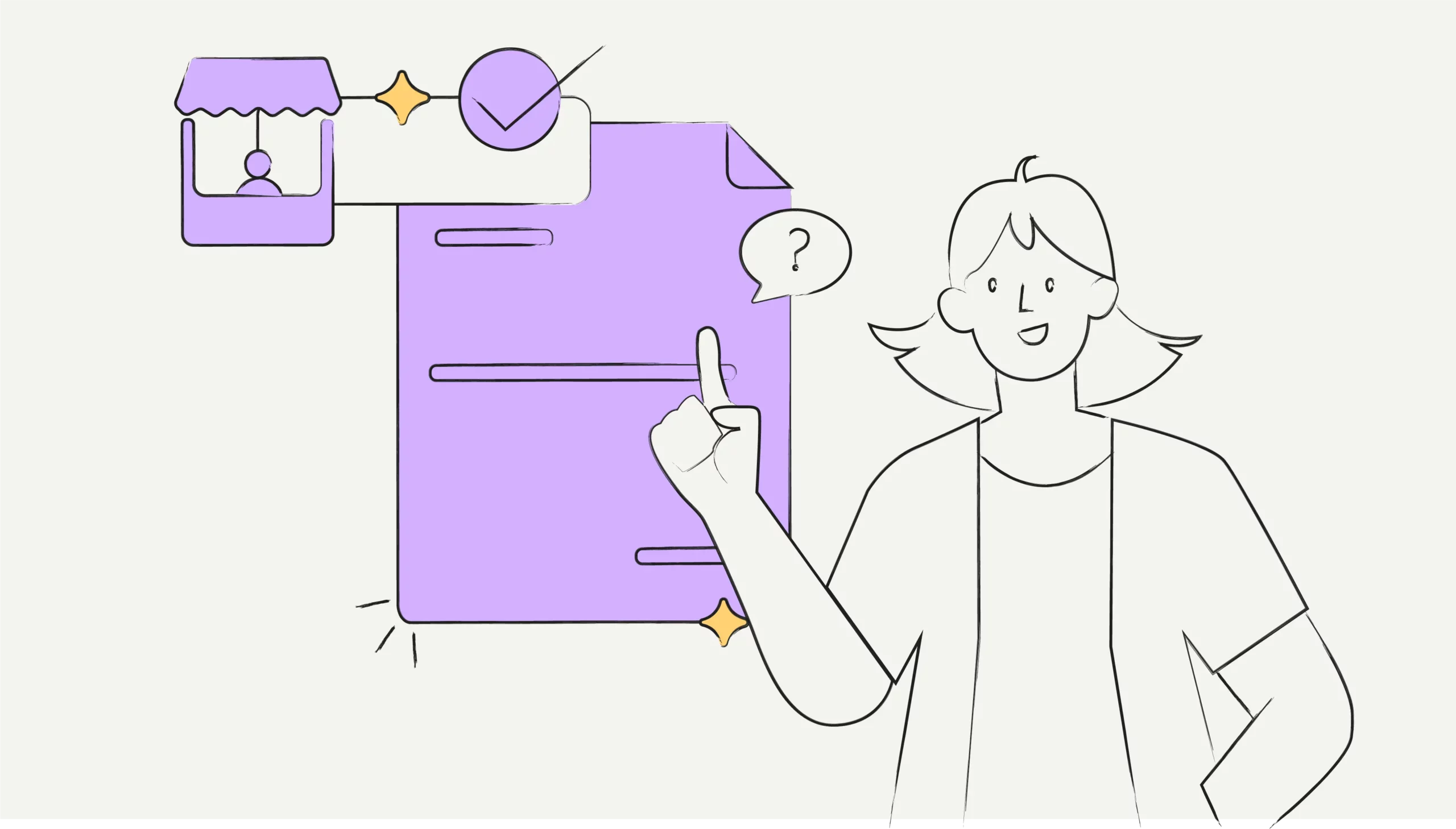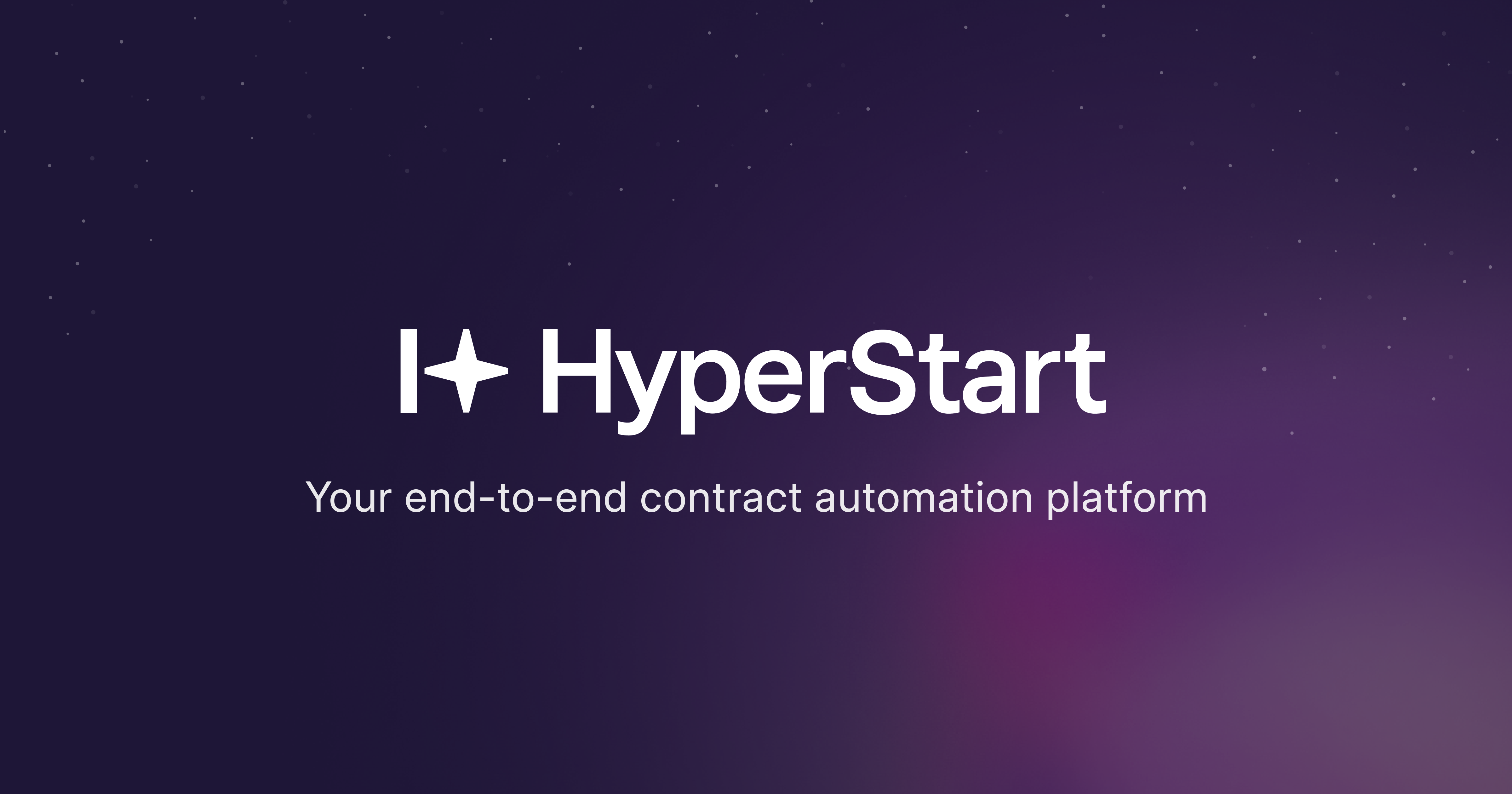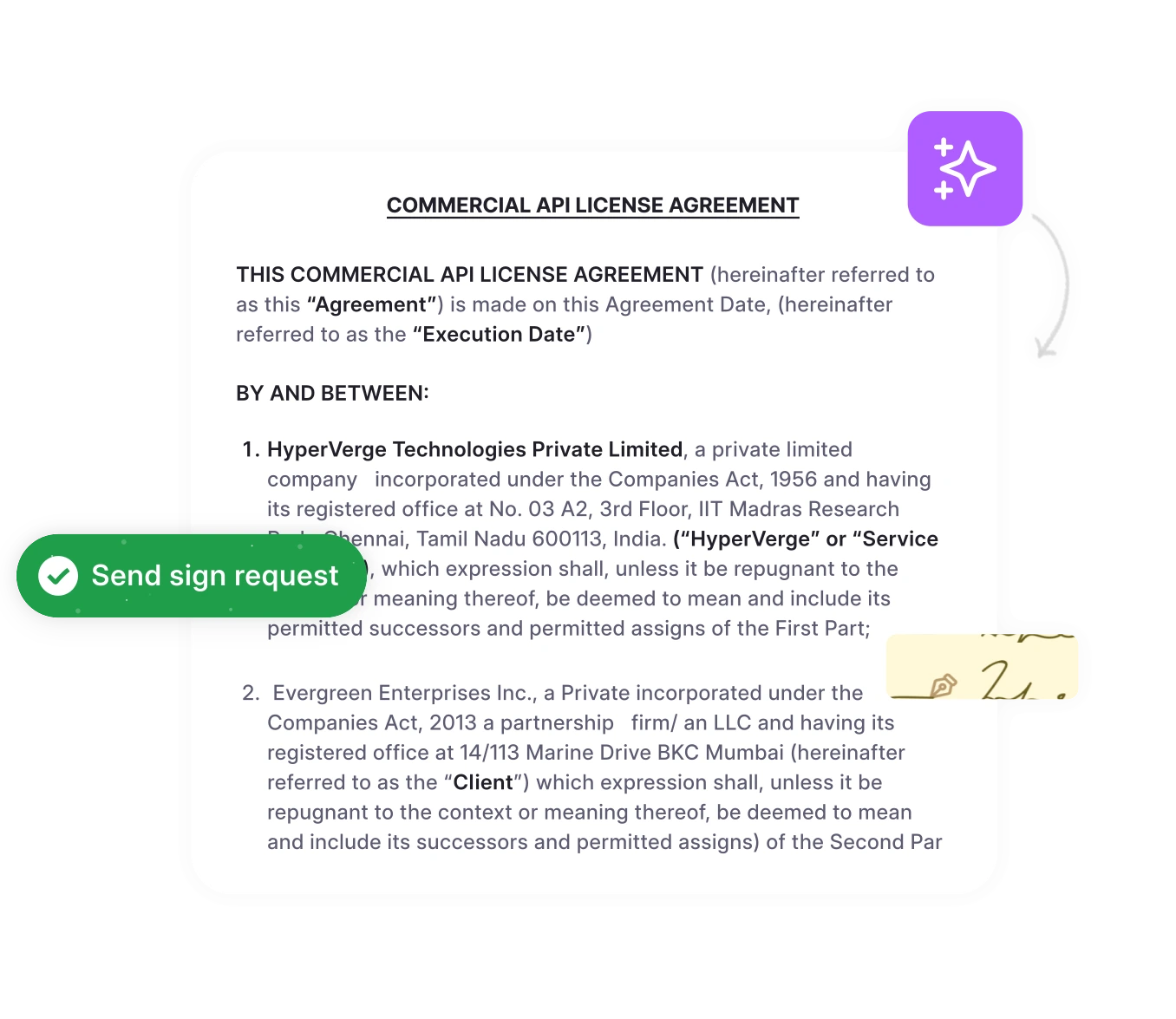Vendor contract management is the backbone of procurement operations. They help regulate vendor relationships, streamline procurement operations, and ensure business interests are met.
Vendor agreements also offer insights into supplier performance and help achieve business objectives like:
- Driving value beyond cost savings
- Aligning procurement processes with overall business goals
Effective vendor contract management aims to enhance profitability and strengthen vendor relations by clearly defining expectations, reducing risks, and ensuring compliance in sourcing, supplier negotiations, and identifying cost-saving opportunities. According to the Icertis Procurecon Report:
- 66% of procurement professionals are considering AI to increase efficiency, enhance decision-making, and gain a competitive advantage
- 55% are considering improving speed-to-value and ROI as a high priority to accelerate value creation
- 46% are considering reducing operational costs as a high priority
This blog offers insights into setting up vendor contracts for success. Get complete information on how you can use vendor agreements and contract management techniques to your business’s advantage. Let’s begin.
What is vendor contract management?
Vendor contract management refers to administering legal contracts with vendors and suppliers. This means handling all the stages of the vendor contract lifecycle management process—agreement drafting, review, negotiation, signing, execution, and storage.
A robust and well-planned vendor contract management strategy:
- Governs vendor relations
- Centralizes vendor agreements
- Safeguards business interests
- Ensures compliance
However, managing vendor contracts can often be challenging, especially when dealing with multiple vendors. Let’s look at this closer.
Common challenges in manual vendor contract management
Third-party contract management is tedious, prone to human errors, and ineffective. Each of these snowballs into lost contract value. Let’s discuss how manual vendor contract management causes this:
1. Hidden financial drain
When financial terms are not monitored properly, they leak through overpayments, unclaimed discounts, unused credits, and excessive consumption. Organizations also have a difficult time tracking indirect costs and incorporating them into sourcing decisions. Studies show enterprises can lose 9.2% of annual revenue from poor contract governance.
2. Operational bottlenecks
Manual obligation tracking leads to missed deliverables, misallocated resources, and scope creep. Teams end up spending most of their precious time troubleshooting instead of driving innovation and improvement.
3. Myopic strategy
Without a central contract storage and complete performance visibility, negotiation opportunities are forfeited, relationships remain siloed in transnational contracts, and the competitive edge wears out. Without insight into contractual partnerships across the portfolio, incremental efforts will remain broken, and strategy will remain blindsided.
These are a few challenges in manual vendor contract management. It is possible to mitigate these challenges by using a robust, automated, and secure vendor contract management software like HyperStart CLM. Let’s look at the benefits of automating vendor agreement management through a software solution.
7 benefits of automating vendor contract management
As per a World CC report, two-thirds of procurement companies are planning on improving their procurement processes. Vendor contract management software helps automate contractual processes and enables smart vendor management through AI-based features. Here are a few ways in which these tools help vendor contract managers streamline vendor agreements
1. Accelerates contract generation
A vendor contract management tool helps speed up vendor contract creation by automating and accelerating contract drafting.
Pre-approved clause libraries and self-serve templates enable the procurement team to create legally compliant agreements in minutes. You can then request markups from vendors because starting with counterparty language can make it more difficult to negotiate.
2. Speeds up deal finalization
After drafting the contract, process and workflow gaps between legal and procurement teams can delay contract signing. On the other hand, a vendor contract management system helps approve and close deals faster by automating the contract management workflows.
All steps of the contract lifecycle process—creation, internal review, counterparty review, negotiation, redlining, signing, and storage—work automatically through relevant stakeholders. Automated alerts ensure no step is bottlenecked for long.
3. Enhances negotiation power
Vendor contract management systems help secure better deals by giving procurement and legal professionals insights into historic contract data. Contract intelligence like contract value, liability, indemnification, SLAs, etc help secure better deals.
HyperStart CLM’s contract dashboard solution converts vendor contracts into a powerhouse of intelligence. This data, when combined with aspects like market fluctuations, demand, and competitive advantage, is useful for elevating your negotiation power.
4. Streamlines deal renewals
Vendor contract management is an ongoing process and involves automated tracking of upcoming contract renewal dates and preparing to renew vendor agreements. This gives you enough time to renegotiate before the previous contract expires.
You can understand factors like expiration-to-renewal ratio and renegotiation factors, enabling efficient deal renewals with revenue optimization. Contract management software like HyperStart CLM offers automated renewal tracking solutions to ensure you never miss a renewal again.
5. Enables obligation tracking
Contractual obligations like legal compliance, deliverables, payment dates, and business commitments are important parts of the vendor deal. A contract tracking automation solution helps track all these obligations and ensure optimal vendor performance.
Automatic reminders and alerts help you stay updated with upcoming obligations and streamline procurement operations. Moreover, connecting your vendor contract management software with other tools, like finance systems, automates processes like billing and receipt generation.
6. Offers data-driven insights
Contract analytics are useful for monitoring vendor performance and making data-backed decisions for business operations. By analyzing vendor contracts, you can gain insights into your vendors’ performance and ensure contract fulfillment.
Tracking vendor contract management KPIs is also useful for understanding the performance metrics and making data-driven decisions for procurement operations.
7. Unifies vendor contract storage
A centralized contract management system helps store all vendor contracts in one place. A unified AI-powered contract repository enables business teams to store, find, and retrieve all vendor contracts in one place.
Contract key terms can be easily searched for. Moreover, central repositories offer features to organize and arrange contracts according to your preferences, making contract storage and retrieval easy.
Get total oversight of all your vendor contracts
The single-stop platform for all your vendor contract operations from initial request to renewal to everything in between.
Book a DemoThese are the benefits of automating vendor contract management. Now, let’s take a look at the popular vendor contract management systems that offer them.
Top 3 vendor contract management software options
There are many contract management tools available in the market. However, if you are looking for the best contract management software, you need to consider factors like features, integrations, ease of use, customizability, and implementation support.
- HyperStart CLM is best for its fast and accurate extractive AI, quick implementation time, and intuitive UX, so you see value from day 1.
- SpotDraft has been commended by users for ease of use, best customer support, and easy setup.
- Juro is best for its no-code workflows template and robust automations across the CLM lifecycle.
HyperStart CLM is the fastest, most accurate, and efficient option. From intake forms to renewals, we offer end-to-end functionality for all contractual processes.
Wondering how exactly HyperStart CLM would benefit you? The next section explores the key features.
HyperStart CLM features for vendor contract management
Built using a well-trained AI model and a record of handling over 1 billion documents, HyperStart CLM is your reliable solution for handling all vendor contracts in one place. Here are the key features of this solution:
| Pre-signature | Benefit |
| Self-serve drafting | Create contracts in 2 minutes. Reduce vendor contract TAT by 80% with approval workflows. |
| AI-redlining | Review counterparty or your own papers to spot opportunities, risks, and liabilities. Save ~6 hours on every review. |
| Post-signature | Benefit |
| Central Repository | Bulk-import, store, and analyze vendor agreements from multiple sources in a central contract repository. Retrieve vendor contracts in 2 minutes with AI-filters. |
| AI-Extracted Metadata | Automated metadata extraction with 95% accuracy. Combined with automated reminders for key deadlines, you’ll never miss a renewal again. |
| Dashboard & Analytics | Visualize metadata in drillable dashboards to analyze vendor performance. Make informed decisions on renegotiations and renewals. |
Manage all your vendor contracts in one place
HyperStart CLM—your one-stop solution to create, review, negotiate, sign, store, and track all vendor agreements. Autopilot vendor contracts with AI.
Book a DemoThese features make HyperStart CLM an excellent platform for managing vendor contracts for your organization. Not just that, HyperStart CLM is great for managing contracts of various teams like sales, HR, finance, and more.
Regardless of which CLM you choose to handle your vendor agreements, there are a few best practices that you can implement to ensure smooth vendor contract management. Let’s take a look at some of them.
5 Best practices for effective vendor contract management process
Make sure your vendor contract management process has best practices embedded into it.
A bad process combined with good technology is still a bad process. It’s crucial to first perfect your process, even if it relies on something as simple as email. Once that’s done, transfer that process to the technology, and then make improvements from a technological standpoint.”
1. Renew deals with vendors through contract renewal
Renewing contracts with existing vendors helps maintain continuous business relations. When vendor contracts expire or are discontinued, organizations must go vendor-hunting again and find suitable suppliers as replacements. In situations where a vendor is acquired or exits the market, novation of contract allows the replacement vendor to assume all rights and obligations while the original vendor is completely released from liability.
Therefore, by prioritizing vendor contract renewal, you can save time and effort to find new vendors, leverage established supplier trust, and continue procurement operations effortlessly.
2. Conduct due diligence on vendors
Conducting due diligence on vendors helps understand potential risks associated with a vendor. Identifying, assessing, and prioritizing the risks is the key to ensuring minimal disruptions in procurement operations.
By conducting vendor due diligence, you can identify non-suitable vendors, for example, the ones that are not fulfilling the given commitments or are at legal risk. This helps terminate non-performing vendors and safeguard business interests.
3. Track vendor performance and obligation fulfillment
Are your contracted vendors fulfilling their commitment? The only way to know this is to track their agreements and cross-verify the information with actual obligation fulfillment. Vendor contract management helps achieve this objective.
By assessing each vendor’s performance against business objectives and legal and regulatory requirements, you can get data on obligation fulfillment. This helps identify bottlenecks in procurement processes and helps keep vendor obligations streamlined.
4. Connect your contract management software with existing systems
Connecting your vendor contract management system with external systems helps maximize automation in vendor management and accelerates procurement efficiency. One such example is connecting your contract software with an accounting management tool and an inventory management system.
This way, you can automate processes like invoice generation, payments, order placement, and inventory management through effective contract management.
5. Establish governance systems for long-term collaborative relationships
Onboard vendors that can collaborate across your organization in the long haul. Set up an integrated contracting, implementation, and vendor management across the board that creates a strong feedback loop for the next contract negotiation, so legal and procurement work harmoniously. Use performance data analytics to establish a contract governance process that focuses on improving buyer-supplier relationships. Take corrective action at first offense.
Implement these best practices to avoid vendor contract bottlenecks and easily manage third-party vendors. All you need is a smart software solution that helps you manage contracts with your suppliers.
HyperStart CLM: End-to-end solution for smart vendor contract management
Managing supplier contracts is a major challenge for procurement and legal teams. However, it is important to administer all vendor contracts efficiently to ensure vendor compliance, maintain healthy business relationships, and optimize the procurement process.
HyperStart CLM helps you achieve all these objectives through automated contract management. Built using a reliable and well-trained AI model, HyperStart CLM is a complete suite for managing supplier contracts. Here are the key highlights of HyperStart CLM:
- 5x faster contract review
- 2-second contract retrieval
- 75% less negotiation time
- $20 saved per contract
Book a demo with our team today and empower your procurement and legal teams with the right tool to manage your contracts.
Frequently asked questions
- Service level agreements: An SLA is a contract executed between a service provider and a service user. This contract outlines the expected service standards, performance metrics, responsibilities, and expectations.
- Time and material contract: This type of contract charges the vendors for the time and materials they invest while providing their services.
- Fixed cost contract: Fixed cost contracts are used for well-defined commodities and project scopes, the prices for which are determined during negotiation.
- Cash reimbursable contract: This type of vendor contract means that, in addition to the standard payment, the buyer will reimburse the vendor for resources required to fulfill the contract’s obligations.
Apart from this, the standard stages of the contract lifecycle management process, like contract creation, review, redlining, negotiation, signing, and execution, are also parts of the overall process of managing vendor agreements.
Therefore, using vendor contract management software like HyperStart CLM and automating vendor contracting processes is a great idea.
Moreover, CLM tools also help understand negotiation contractual trends, enabling businesses to improve their negotiation power and secure better deals.












